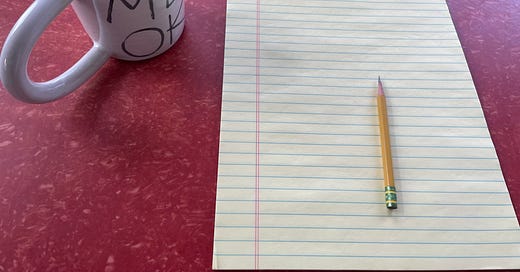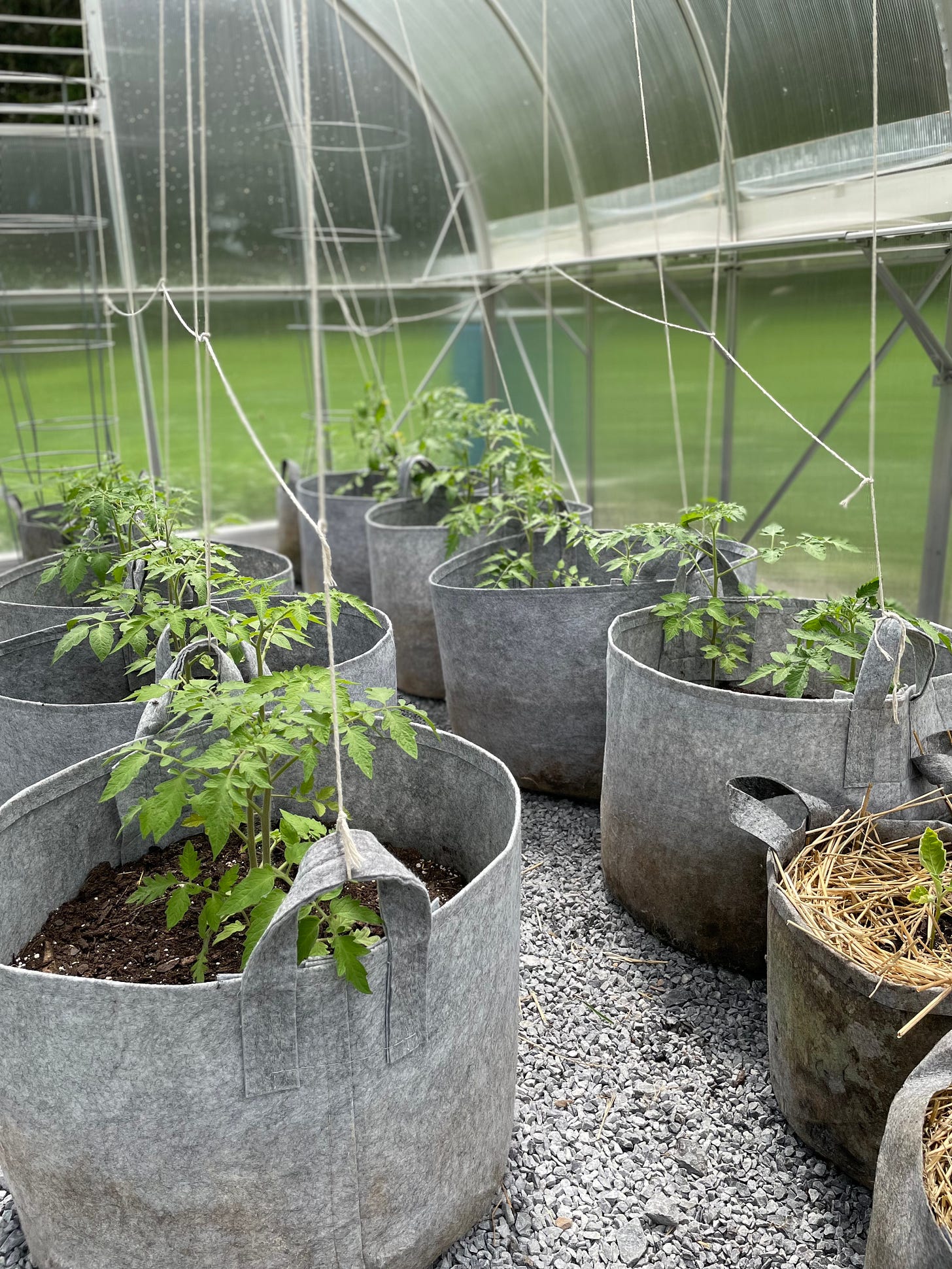Hi hello folks,
I’ve described some of my daily self-care routine to you all before but I decided to put it here, in one post, for those who are interested.
I often discuss one aspect of my approach to my own mental health these days, in part reflected by this newsletter’s title: What’s Helping Today. As in, I personally try to focus on the positive and on the right now. What have I done today, or what might I do, to positively impact my spirit, however slightly?
This shift in my consciousness has changed a lot, really my entire strategy to living life. And it has inspired the development of this daily routine. In my head, I start every morning with a checklist of five items:
journalspeak
meditate
yoga
walk
bathe or shower
There is an implied sixth:
be kind to myself if I fail at doing these or other basics
I’ve described JournalSpeak before here (and the actual description is here). Here’s more of my thoughts on baths and on yoga.
I try to JournalSpeak-and-meditate early in the morning, if I can, usually with my first or second cup of coffee. I try to first minimize all distractions whenever I’m doing something that requires my total focus like this. So that might mean, tending to pets and bodily needs and so forth before settling in.
I like to write long hand, on a legal pad, with a very sharp pencil. I have let all these details matter — the coffee, the sharp pencil (as one meditation teacher I enjoy often says “comfort is queen”). I put on ambient music. I set a timer for 20 minutes and then I let the practice overtake me:
I’d been evangelizing at my husband Rob about JournalSpeak for a few years; this spring, he got COVID while traveling alone and during his recovery, finally tried it. He then (as happens), became a devotee of the practice, doing it daily for many months. He took to calling the combination of JournalSpeak-and-meditation “brain cleaning,” a term that has stuck around here. Or: 🧠🚿. We’ve taken to calling the combination of journalspeak-meditation-yoga “a triple.” These are activities that, typically, feel hard to do but afterwards I am never upset that I have done them. I never feel worse for having done them, put it that way.
I never actually expected Rob to start doing any of this stuff, but now that he has, I know it has changed our relationship. Both of us spend more time, on our own, flushing out the bullshit that can pile up in a human psyche (an activity one can also do in therapy, or in conversation with a good friend, or in regular journaling, and so forth). Each of us doing this work allows us to interact with one another as better versions of ourselves — hopefully. Ideally. Not always. But it surely helps overall.
These days, my own relationship with JournalSpeak itself is more relaxed. I try to allow myself days off, especially because I don’t want the practice to feel like it’s controlling me, and therefore wind up being counterproductive. But I try to pay close attention to how I’m actually doing. I try to rely harder on this and other supports when everything’s feeling harder — whether in my life, or in my body, or in my mind, or all of the above as is often the case.
JournalSpeak shouldn’t be a life sentence, as its creator, therapist Nicole Sachs, often says. I am, by virtue of my trauma history and other experiences, somebody who derives a great deal of benefit from JournalSpeaking frequently even after a few years of daily consecutive practice. I often in fact think I’ll continue using it near-daily for the rest of my life. (And for me daily meditation in some form is a non-negotiable.) However I don’t think this is the case for everybody. From listening to countless hours of her podcast about this practice, my sense is many people who do find JournalSpeak acutely helpful do so for a finite period of time. They then tend to settle into a more ‘recovered’ relationship with the practice. Rob for example now uses the practice more at-will.
Point being, as with all of this stuff, my main thought is going to be: you do you.
The implied sixth thing on my list — taking it easy on myself if I fail to get to the other things — is crucial. It’s probably the hardest part for me, on some level, the taking it easy on myself. Because self-love can be awfully challenging.
There are days when, for whatever reason, I’ll fail to do some if not a lot of these self-care routines. The temptation to bully myself about this failure can be strong. On those exceptional days, figure that implied sixth thing is usually all the more important.
I’m excited to share that I’m the guest on the new episode of the TED podcast How to be a Better Human, which is hosted by my friend Chris Duffy. We discuss mental health and daily self-care practices and much else. I love Chris and I am really honored by what he and his colleagues put together.
Take care,
Sandy
p.s. I’ve been getting some really lovely responses to my Esquire essay; thanks so much to those who’ve read and shared. 💗💙
p.p.s. What’s Helping Today: I used some string to start a tomato trellis in the greenhouse this morning!





